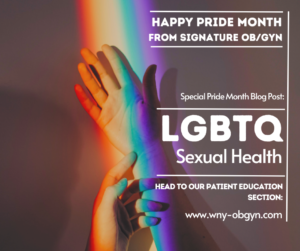By Iris Farrou
17 Oct, 2023
Health Conditions and Pregnancy, New Moms, Parenting, Pregnancy, Prevention, Women's Health
blood pressure, early pregnancy health care, fact, genetic testing, geriatric pregnancy, Gynecologist, heart rate, high risk pregnancy, HIV, how to take care of my body when pregnant, level, Prenatal Health, prenatal visit, Rh, Screening, STD, STI, weight, when should I see a doctor after positive pregnancy test, when to see OBGYN
 Finding out you are pregnant is often very exciting, and it may come with a ton of questions as to what happens next, how you should take care of your body and your baby, how to prepare for their arrival, and all the combinations of both nervousness and excitement! Taking care of your baby begins the moment you find out you are pregnant, and seeking professional prenatal care early is key to a healthy pregnancy and successful delivery.
Finding out you are pregnant is often very exciting, and it may come with a ton of questions as to what happens next, how you should take care of your body and your baby, how to prepare for their arrival, and all the combinations of both nervousness and excitement! Taking care of your baby begins the moment you find out you are pregnant, and seeking professional prenatal care early is key to a healthy pregnancy and successful delivery.
What Do I Do?
Very good question! Most mothers have asked the same, so here is a basic checklist:
- If you suspect you are pregnant, make an appointment with your OBGYN as soon as possible. If you don’t have a regular OBGYN, call your insurance and see which experts in your area accept your insurance. If you don’t have insurance, before you look into applying, contact family planning clinics and community health centers close to you–those do provide basic prenatal care either free of charge or at a low cost.
- Your first prenatal appointment usually happens when you are 8 weeks pregnant, when a review of your medical history will take place and possibly a urine and blood test as well.
- For uncomplicated pregnancies, expect to see your prenatal healthcare provider once a month up until the 28th week, twice a month for weeks 28-36, and weekly from week 36 until delivery.
How Does this Help my Baby?
During your prenatal visits your doctor or nurse will check both your health and the health of your baby: your blood pressure and weight need to be monitored, measuring your abdomen to determine your baby’s growth is important, and your baby’s heart rate will also be checked at every visit.
Studies have shown that babies of mothers who receive no form of prenatal care whatsoever are three times more likely to have birth complications or low birth weight. It is understandable that if your insurance doesn’t cover the cost of all suggested prenatal exams and tests, you may not be able to afford them all. Some tests are screening tests, meaning that they detect risks of possible health problems; based on their results, your doctor may suggest diagnostic tests to get more accurate results.
What are some of the tests?
First and foremost your doctor needs to know your blood type and Rh factor, as well as any STIs, infections, or HIV. Genetic testing may be suggested to diagnose birth defects or possible genetic conditions, tests for chromosomal abnormalities, gestational diabetes test, glucose tolerance test, as well as regular urine tests and ultrasounds.
More
By Iris Farrou
19 Jun, 2023
Fatherhood, Mental Health, Parenting, Queer Health, Reproductive health, Sexual health, Women's Health, Young adults & teens
Adolescents, Ally, Bisexual, Gay, Gay-Straight Alliance, Gender Identity, Gender Terminology, Gynecologist, Gynecology, health, Helping my LGBTQ child, Inclusive Sexual Health Education, Intersex, Lesbian, LGBTQ, LGBTQ Youth Support, LGBTQIA+, Neurodivergent, Non-Binary, OBGYN, Pre-Teen, Pride Month, Pronouns, Queer, Sexual Behavior, Teen, Teenagers, Transgender, Youth

Most parents nowadays try to ensure their kids have a well rounded education when it comes to sexual health and safety, and “the talk” has been appropriately modified–in most households–to expand beyond the heteronormative model of sexual intimacy. Teenagers are exposed to diverse models of relationships, and abundant resources are available for those who explore their sexual and gender identity.
Despite the positive rise, the statistics on LGBTQ-focused sex ed in schools remain low. In a 2015 survey only 12% of the Millennial participants reported that their school’s sex ed curriculum covered same-sex relationships–and that’s not even discussing sexual or gender identity. It becomes clear, then, that it is up to parents and medical professionals to be more educated, to be better allies to LGBTQ kids and youth, and to be a safe space for them. According to the National Center on the Sexual Behavior of Youth “children’s sexual awareness starts in infancy and continues to strengthen throughout preschool and school-age years,” so no matter how young your child is, they know what’s going on with their body and it is your job as a parent to support them.
How can I be an Ally?
Just as it is with any support system, the best way to be an ally is to educate yourself; on LGBTQ history, sex and gender terminology, legal issues, local issues in your city, school issues that may have come up in your child’s school. LGBTQ youth are more likely to be bullied in school, and to search for information on the internet– which often leads them to not credible sources.
- Be a Visible Safe Person: it is important to show your kids you are supportive of the LGBTQ community, and that you are open to conversations about sex and gender. This can be as simple as bringing home a book about queer issues, or a pamphlet from your local Pride Center; you can also initiate conversations about the history, rights, and health of the LGBTQ community. Even a film night is a great way in!
- Support Local Queer Organizations: if there is a Gay-Straight Alliance (GSA) at your child’s school, be an active participant in their efforts for inclusivity, policy, and curriculum changes. If there is a Pride Center where you live, take your kids to family-friendly events. Should a Pride Parade happen in your town or nearby, go the extra mile, or walk the rainbow mile with your kids.
- Provide Reading Materials: just like with any topic, there are age-appropriate books for your child to help them learn more about the LGBTQ community. Visit your local bookstore and ask for the latest publications, and take a look at The Rainbow Collection of the American Psychological Association: https://go.maginationpress.org/rainbow-collection/
- Be a Source of Knowledge: it is impossible to be an encyclopedia for everything your child asks you. But for topics on which misinformation is rampant, is it not important to be a trustworthy source of knowledge? The CDC has an excellent LGBT Health page you can consult as a “crash course,” and they also have a list of regional LGBT Health Services.
Use the Right Words: when your child first becomes interested in their body, or if your toddler or pre-teen asks questions, you can expand the discussion and include appropriate terminology to talk about gender, and talk with them about how pronouns are important outside of their grammar exercises. If your teen is being more direct with their questions, the Gay, Lesbian & Straight Education Network (GLSEN) can help you and them on Inclusive Sexual Health Education, and they can also visit a well-researched and peer-edited page written for teens by teens: https://sexetc.org/
More
 Finding out you are pregnant is often very exciting, and it may come with a ton of questions as to what happens next, how you should take care of your body and your baby, how to prepare for their arrival, and all the combinations of both nervousness and excitement! Taking care of your baby begins the moment you find out you are pregnant, and seeking professional prenatal care early is key to a healthy pregnancy and successful delivery.
Finding out you are pregnant is often very exciting, and it may come with a ton of questions as to what happens next, how you should take care of your body and your baby, how to prepare for their arrival, and all the combinations of both nervousness and excitement! Taking care of your baby begins the moment you find out you are pregnant, and seeking professional prenatal care early is key to a healthy pregnancy and successful delivery. 
